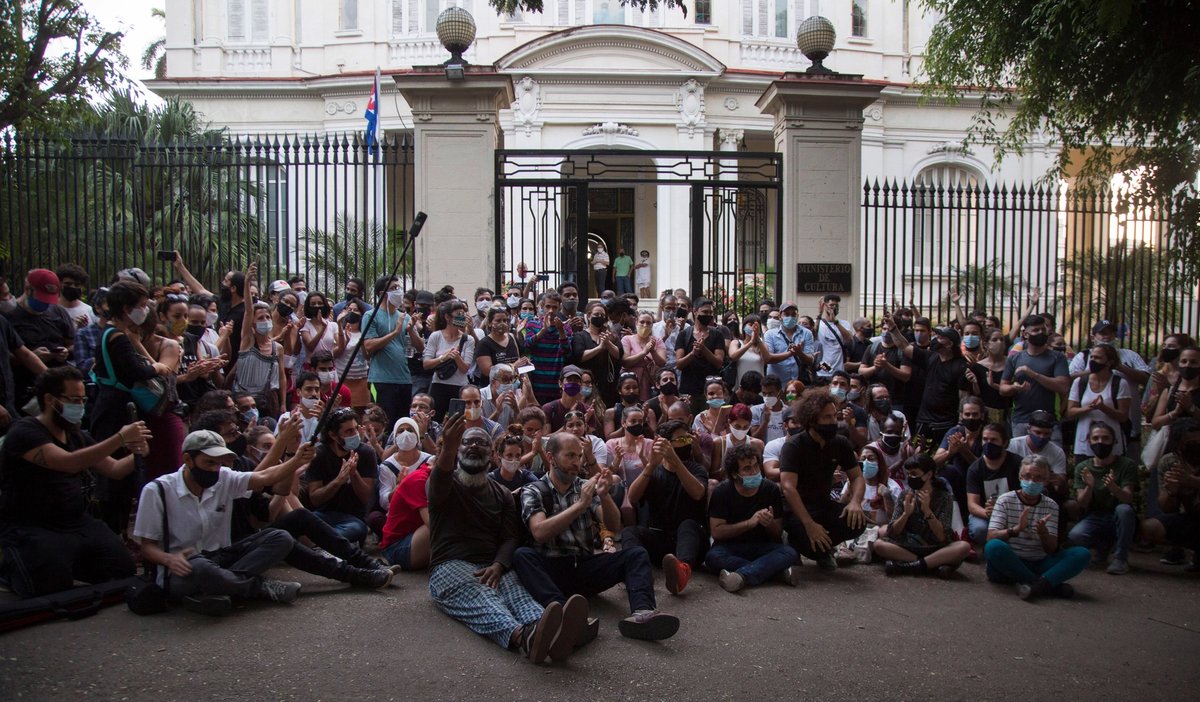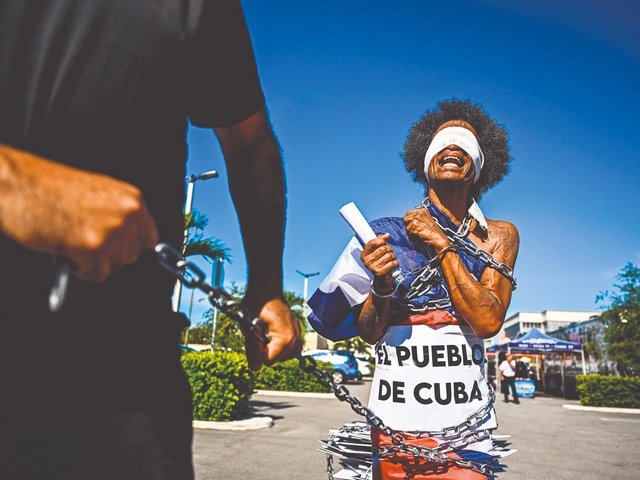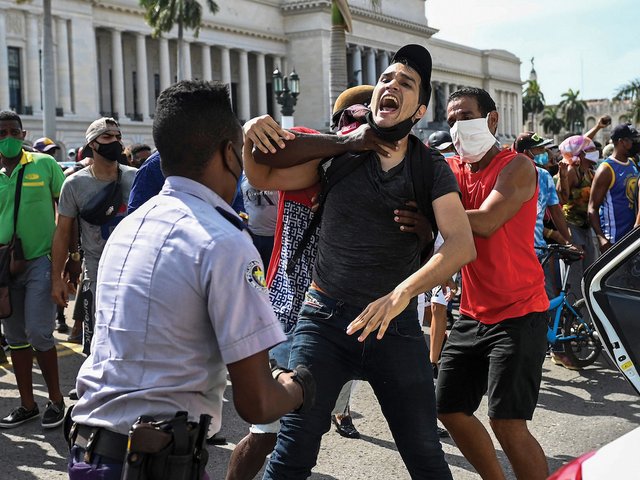Before an earthquake begins to rattle walls and topple buildings, sound travels through compressional waves that shoot out from the fault line and set off early warning systems, which in turn can get people to safety. When Raúl Castro, the brother of Fidel and until recently First Secretary of Cuba’s Communist Party, announced his retirement, some expected a cultural windfall on the island, which in recent months has been railed against for censoring, and in the worst cases arresting and destroying work by artists who speak out against the government. There were no shockwaves of change, and as far as Cuba’s artistic and intellectual community is concerned, none should be expected.
“Nothing has changed nor does there seem to be a will for change within the new leadership,” says the Cuban artist Julio Llopiz Casal, a member of the organisation of activists, artists and intellectuals, 27N. Casal says Raúl Castro, like his brother before him, would make decisions in what seemed like an inclusive, collective way, but always had the last word and only encouraged laws that increased Party control.
The Cuban president Miguel Díaz-Canel, who replaces Castro as head of Cuba’s Communist Party “has neither the ‘charisma’ nor the symbolic prestige” of the Castros, Casal says, but he “grew up seeing that the Party governs by forcefully imposing rules and curbing civil liberties as much as possible, and that is what he is going to do.”
There is some evidence of this already. In January, a free speech protest outside the ministry of culture in Havana led by 27N members resulted in the arrest of Cuban artist Tania Bruguera and the journalist Mauricio Mendoza, along with other artists and activists. A month later the group filed a legal petition to have the minister of culture, Alpidio Alonso, removed from office for “conduct unbecoming public service” for accosting someone during the protest; 1,200 people signed the petition.
Hamlet Lavastida, a Cuban artist also involved with 27N as well as the San Isidro Movement, also does not believe a cultural shift is within reach. “What you have to understand is that we aren’t a dictatorship, not in the traditional sense of the word. It’s more complicated. The Cuban Communist Party has established vertical rule for the whole society that obliterates other forms of political representation and participation. It doesn’t matter if it’s Fidel Castro, Raul, or Diaz-Canal—as long as the Communist Party is in power, Cuba will be a ‘dictatorship’ and nothing is going to change,” he says. In the last few months, Lavastida adds, the government is putting pressure on artists because they know the power of cultural perception, and with Facebook, and Instagram, Cubans have more power to speak out than they have before.
And maybe that is where the shockwaves are coming from. Not from a changing of the guard but from below, from underground. Casal agrees: “We are in an age where social media and other technologies prevent [the Cuban Communist Party] from having an exclusive monopoly on information… we can see in high definition what they do well or what they do badly, but they still have exclusive political control and can, of course, punish those who are not willing to pay them loyalty and legitimize their speech.”
“27N is a real change in Cuba,” says Enrique Del Risco, a senior language lecturer at New York University whose focus includes Cuban culture and literature and cultural exiles. “But politically, the only thing that has changed in Cuba in the last two or three years is the army’s rise to power. Cuba is in the worst crisis since the 1990s. I am not optimistic in any way that culturally things will change soon. Cuba’s evolved into a Russian regime, just without the oligarchs. And in the last few months they have only confirmed their intention to confront everything that comes from artists and dissidents, to crush them,” he says.
Still, groups like 27N, which was founded on 27 November during a demonstration outside the ministry of culture in Havana to protest a government crackdown against the San Isidro movement the previous day, keep working to better the country. Last week they released a manifesto declaring their right to express themselves artistically, to demonstrate freely, and to demand political and economic freedom.
“27N aims to build institutions that will guarantee, with minimum intervention from the state, that no tyrant or ideology will hold power over our peers,” Cuban art historian Carolina Barrero wrote in a comment for The Art Newspaper.
"If there is a change," says the Cuban artist Camila Lobôn, "it will not come from the will of power, but from the prolonged overexposure to political hatred that we have experienced. We are all children and grandchildren of Cubans who made 'the revolution' and of those who rejected it, of the repressors and the repressed. And hatred is unsustainable, it has to be. We cannot hate ourselves forever."




